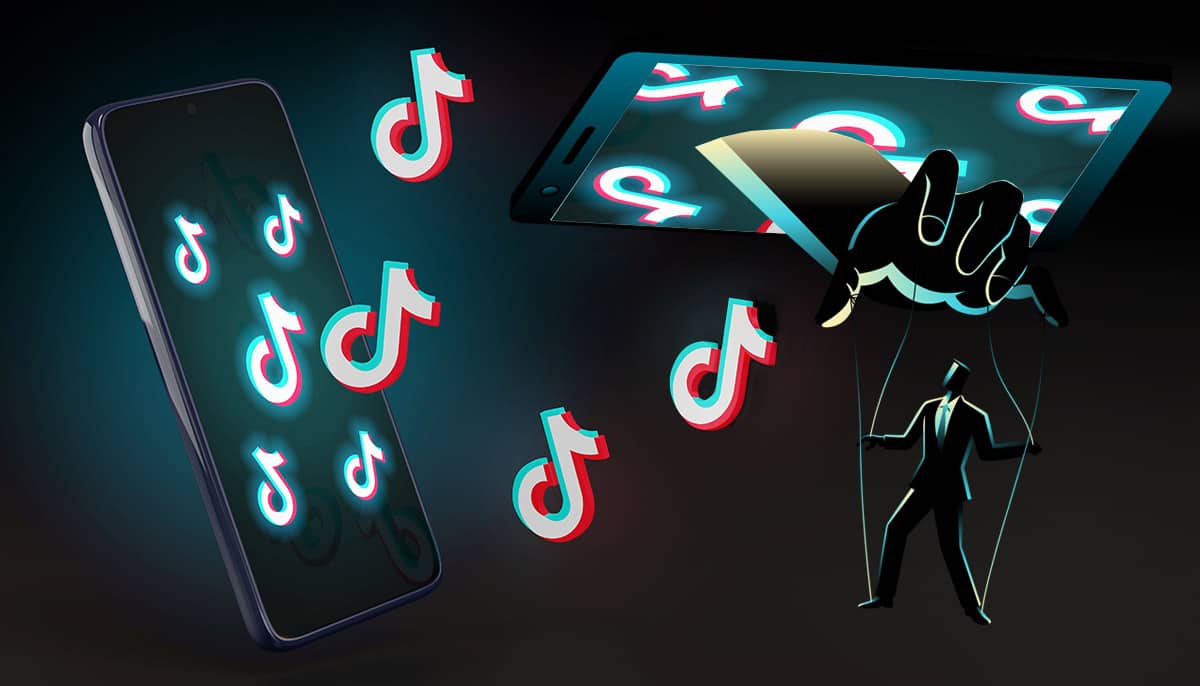
How to Stop TikTok Addiction
Although TikTok is a popular social media platform, it can be highly addictive and lead to individuals struggling with TikTok addiction.
Table of Contents
Many users – particularly teenage girls – are spending too much time compulsively consuming content to the detriment of other interests and activities, their education, relationships, and mental health and well-being.
In this article, we take a closer look at TikTok to help you understand more about the app, the risks involved and why TikTok is so addictive.
Get immediate help for your loved one’s TikTok addiction. Book a free Gameplan call now to learn if our program is the right fit for you.
Who uses TikTok?

TikTok is an app for making and sharing video content. Since its launch in 2017, and subsequent merger with Musical.ly in 2018, it has become one of the world’s largest social media platforms.
There are currently one billion users worldwide, more than 100 million in the United States and 23 million in the UK.
TikTok is banned in five countries – China, India, Pakistan, Indonesia and Bangladesh – on various grounds, including the promotion of indecency and cyberbullying. Douyin, the Chinese version of TikTok, is the only permitted version in China. In response to the Russian invasion of Ukraine in 2022, TikTok has banned new Russian posts and livestreams.
TikTok is most popular with teenage females aged 10 to 19 who account for 16.4% of active users in the US. Females aged 30 to 39 were the second largest group, representing 13.8% of users. Across all age groups, the female/male split is approximately 60%/40%.
Why is TikTok so popular?

The main reason why TikTok is so popular is apparent as soon as you open the app. Unlike other social platforms, the first thing you see isn’t a feed of your friends’ posts, but a button called ‘For You’. It offers the type of content you want to see using an algorithm based on videos you’ve watched or interacted with previously. And it never runs out of content.
The short videos available on TikTok can cause viewers to lose hours of their day to the platform. Data shared by TikTok in January 2022 revealed that the average user spends one hour and 25 minutes on the platform every day and opens the app to watch videos 17 times a day. Many users spend far longer on the platform.
What makes TikTok so addictive?
For most people, TikTok is a harmless distraction from everyday life but for others it can become as addictive as drugs or alcohol.
Dr Julia Albright, digital sociologist and lecturer at University of Southern California (USC), explains that TikTok has adopted the same principles that have made gambling addictive. In psychological terms it’s known as ‘random reinforcement’ (sometimes you win, sometimes you lose – just like a slot machine) which is how platforms like TikTok are designed.
Dr Albright says that in a sense she got addicted to TikTok the first time she used it. She started watching 15-second videos one afternoon and totally lost track of time:
“When you’re scrolling … sometimes you see a photo or something that’s delightful and it catches your attention. And you get that little dopamine hit in the brain … in the pleasure center of the brain. So, you want to keep scrolling.”
It’s not just watching video content that causes the brain to release feel-good neurochemicals such as dopamine and serotonin. When a TikTok user gets a like, comment, share, save, view or follow, it can release the same feelings of euphoria. Over time the brain becomes reliant on this type of stimulation to induce pleasure and it needs more and more TikTok videos and engagement to get the same rush of excitement. Undoing the damage done to the brain because of TikTok and other social media addiction can take months to correct and even lead to addiction.
Risks associated with TikTok

As well as addiction, there are a number of other risks linked to the overuse of TikTok:
Lower attention span
A major concern is what constant interaction with digital technology, such as TikTok, is doing to the brain, particularly young brains that are still developing. Dr Julia Albright says that “our attention spans are lowering”.There is so much information to consume and so little time to consume it in.
Education and career opportunities
Overuse of TikTok can take attention away from learning, reading and doing homework. The consequences are poorer performance and lower grades at school, and ultimately fewer career opportunities later in life.
Neglect of other interests and activities
Constant scrolling through video content is a distraction from other interests and activities that can help young people develop confidence and life skills, to create a strong foundation for a happy and fulfilled future.
Family conflict
Too much time spent on TikTok can cause family conflict. Parents may become worried that too much screen usage is negatively impacting their child’s education and social development. Constant arguments can lead to a breakdown in relationships.
Physical health
Children and teens who spend hours in front of a screen have lower levels of physical fitness, higher obesity rates and less healthy eating habits than children who spend less time scrolling through social media platforms.
Mental health and well-being
A study among teenage TikTok users found that those who are addicted to TikTok experience higher rates of anxiety, stress and depression, and weaker working memory than those who use the app less frequently. When an app is affecting your mental health, it’s dangerous.
How to stop TikTok addiction

If you’re concerned that your son or daughter is addicted to TikTok, it’s time to take action. Here are a number of steps you can take to shift the focus away from screen time to other activities:
Understand your child
Start by asking your child about TikTok and their underlying motivations for using the app. What drives and motivates them? Ask them open-ended questions but don’t argue with them; try to develop a connection, not create tension. To help understand them better learn common phrases and terms on TikTok.
Build a rapport
Showing interest in TikTok without judgment is a good start. Building trust and rapport is key. You can then gently nudge them towards other hobbies and activities and even suggest doing them together.
Create a plan
Set goals with your child – are they going to stop using TikTok altogether or just reduce the amount of time they spend on the app each day? To do the latter, you’ll need to set limits for screen time use. Agree on daily TikTok limits with your child and discuss the consequences of breaking the agreement.
Implement the plan
They may experience withdrawal symptoms in the first few days. It’s important to be aware of these symptoms and have strategies in place to address them. The next step is to find replacement activities.
Evaluate the plan
We recommend evaluating your plan once per month and making changes and adjustments, if necessary.
Get expert help
If you or a loved one are suffering from TikTok addiction, help is available. Our coaching program is designed to help individuals and families regain balance with technology.
Get in touch today to book your gameplan strategy call.
Footnotes
- https://www.wired.com/story/tiktok-wants-longer-videos-like-not/ ↩
- https://www.influencermade.com/countries-that-have-banned-tiktok/ ↩
- https://www.statista.com/statistics/1095196/tiktok-us-age-gender-reach/ ↩
- https://www.wired.com/story/tiktok-wants-longer-videos-like-not/ ↩
- https://www.forbes.com/sites/johnkoetsier/2020/01/18/digital-crack-cocaine-the-science-behind-tiktoks-success/ ↩
- https://www.psypost.org/2022/01/teens-who-are-addicted-to-tiktok-experience-worse-depression-and-anxiety-and-in-turn-reduced-working-memory-capacity-62416 ↩
